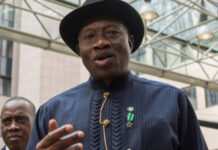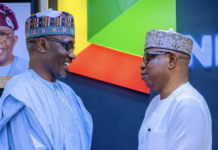In a sharp critique of President Bola Tinubu’s leadership, Phrank Shaibu, Special Assistant on Public Communication to former Vice President Atiku Abubakar, has likened the fate of Tinubu’s once-celebrated political symbol, the broken shackle, to the swastika’s historical transformation from a symbol of good fortune to one of oppression.
In a piece titled “De-cap-itated!”, Shaibu drew parallels between the swastika, which was used by Adolf Hitler’s Nazi regime, and the broken shackles symbol that Tinubu and his supporters adopted during the 2023 presidential campaign.
Historically, the swastika symbolised nationalism and good fortune, representing hope across various cultures. However, its association with the Nazi regime turned it into a global emblem of fascism and hate.
Similarly, Shaibu argues that the broken shackle, initially seen as a representation of freedom and human rights, has now morphed into a symbol of oppression under Tinubu’s leadership.
“President Tinubu, in a campaign soapbox in Ogun State where he made the infamous Emilokan remarks, which is a selfish and arrogant ownership claim to power, has since made the broken shackle a symbol of oppression and political rascality,” Shaibu stated.
The Emilokan mantra, which translates to “it is my turn” in Yoruba, was once celebrated as a rallying cry for Tinubu’s supporters. It was worn proudly on caps adorned with the broken shackle symbol, known as Emilokan caps.
During the campaign, these caps symbolised Tinubu’s promise to protect human rights, boost the economy, and replicate Lagos’s success across Nigeria.
His supporters believed in his democratic credentials and ability to transform the nation into a prosperous economy. However, as Shaibu suggests, the reality has been far from the initial promise.
“Everyone now knows that Emilokan is not about shared prosperity for all but about a rabid appropriation of state assets to personal ownership,” Shaibu remarked.
He further accused Tinubu of building personal wealth by exploiting Lagosians, debunking the widely held belief that Tinubu’s governance was responsible for Lagos’ economic growth.
“Tinubu didn’t build Lagos. Rather, Tinubu built his wealth through the sweat of Lagosians,” he added.





